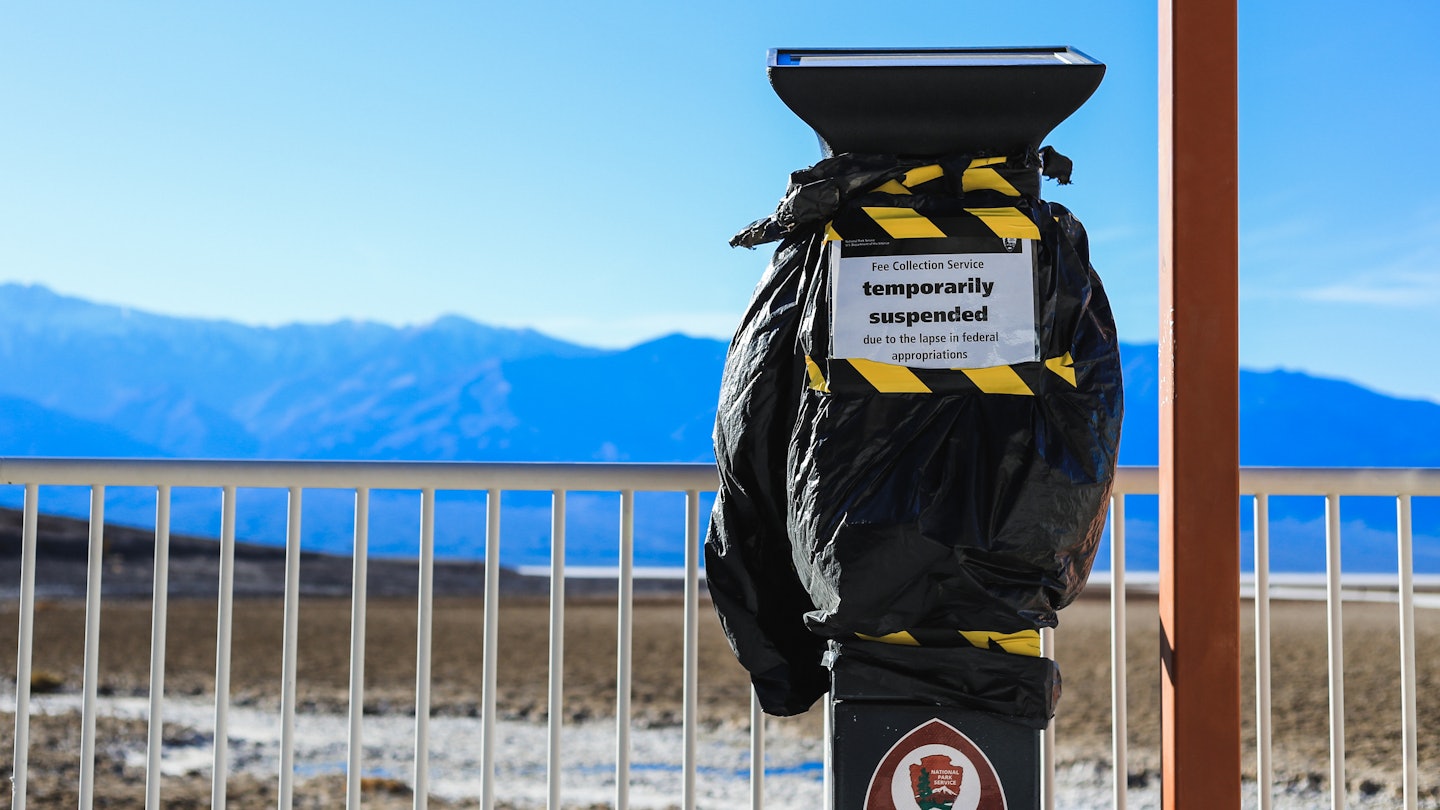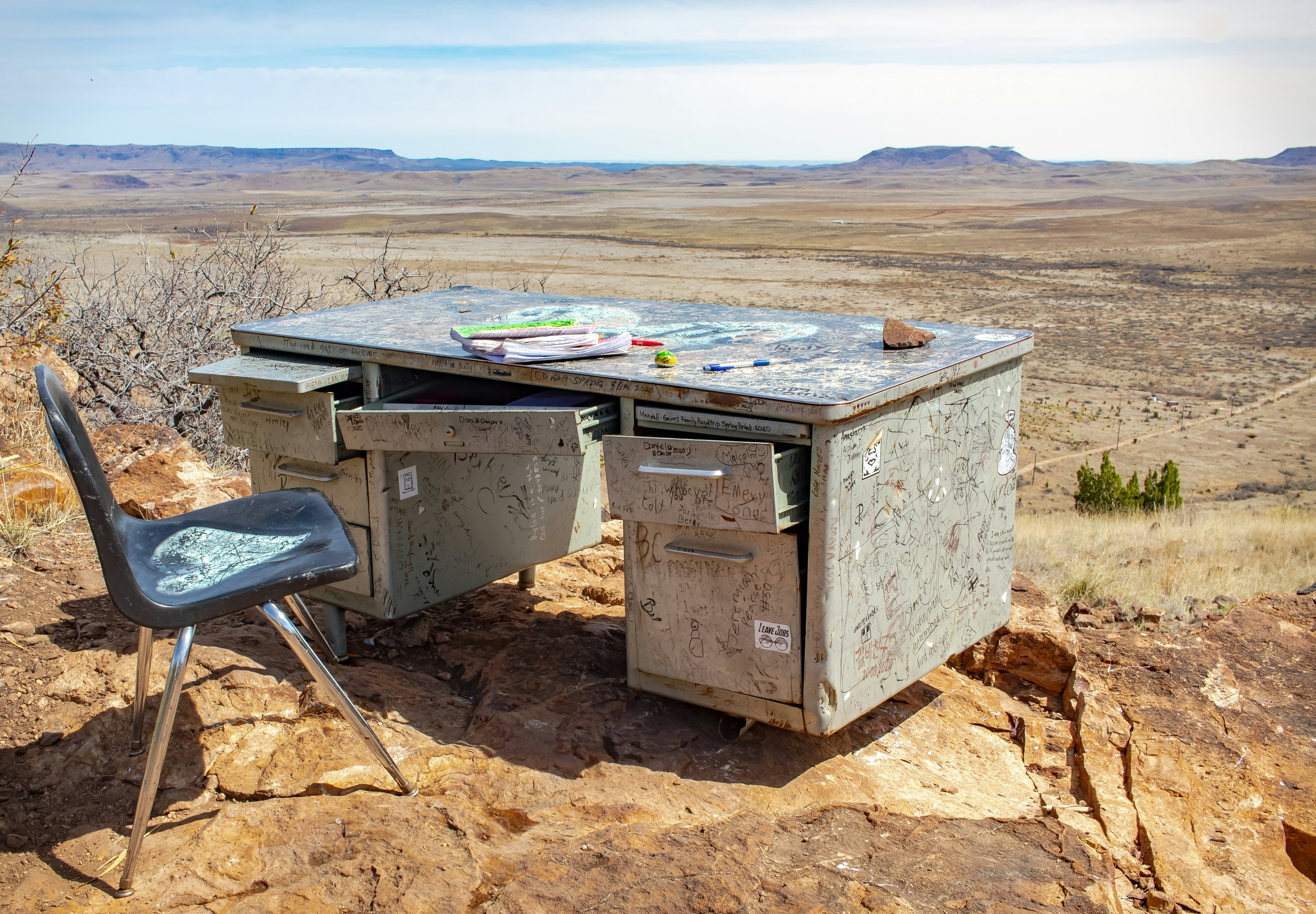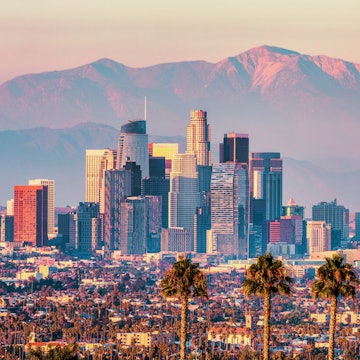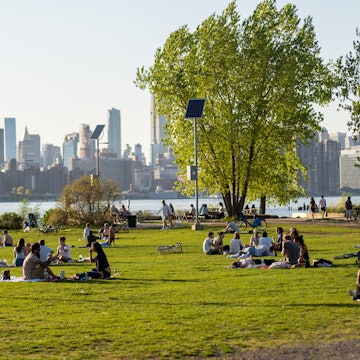

A closed pay machine in Death Valley, California. Logan Bush/Shutterstock
The most recent US government shutdown, which began on October 1, 2025, has had ripple effects around the country, impacting almost everything from research to public lands. Due to the most recent Federal Aviation Administration (FAA) flight restrictions, airlines are expected to cut 4% of their flights across 40 airports in the United States. For those planning trips in and around the US – particularly to national parks – the shutdown is likely to affect your trip.
Here are some of the ways a US government shutdown may affect your travel plans and how to prepare for these changes.

The impact of the government shutdown on flights in the US
According to the Transportation Department, more than 61,000 Transportation Security Administration (TSA) employees and over 13,000 air traffic controllers will work with suspended pay during the shutdown. This has led to many airport employees calling in sick.
The Federal Aviation Administration has reported significant air traffic controller shortages, and it has canceled flights around the country. If you are flying, check FlightAware, a website that tracks which flights are being canceled in real time. You'll also find up-to-date information on your airline's app.
If your flight is canceled because of the FAA's restrictions, you are entitled to a full refund from the airline. The Department of Transportation website lists 10 airlines and what they promise for refunds or other costs if your flight is delayed.
Travelers should be prepared for slowdowns at checkpoints, flight delays and cancellations. Arrive at the airport extra early in case of long security lines. Also, be kind to the TSA officers and other airport workers who are most likely working without pay for your safety.
Planning tip: Keep an eye on your flight status using the airline's website or app. You can also consider opting into text updates.

The impact of the government shutdown on national parks
Before the government shutdown, more than 40 former park superintendents wrote a letter urging Interior Secretary Doug Burgum to close and protect the national parks and public lands. In past shutdowns, sites were vandalized, habitats were destroyed, and visitor safety was jeopardized. In 2025, the parks are particularly vulnerable because of the severe budget cuts and staff reductions that the Trump administration imposed earlier this year.
If you have a trip planned to the national parks, research the park you are visiting on Recreation.gov. Expect restricted services, closed trails and limited staff members.
Staff shortages force parks to operate on an honor system; look out for a QR code where you can pay the entry fee that goes toward improving the visitor experience and protecting the park for future visitors. Also, bathroom facilities will most likely be closed or have unmet maintenance needs, so pack your own toilet paper, hand sanitizer and garbage bag.
As always, protect yourself and the land that you are visiting. With a limited team, search and rescue efforts will be limited. You can prevent dangerous incidents by staying on trails, maintaining a safe distance from wildlife and following park rules. Be mindful of cultural cites that are sacred to Indigenous Americans, and try to pick up garbage where you can.
Planning tip: You may consider delaying your parks trip or opting for a state park to make it easier on the staff and the land. If that isn't possible, be sure to pack everything you need and check weather conditions before going into the park.

The impact of the government shutdown on museums and monuments
Iconic monuments and museums may be closed during the shutdown. This includes sites that are run by the National Park Service, such as the observation deck of the Gateway Arch in St Louis, Alcatraz Island in San Francisco and the Liberty Bell Center in Philadelphia.
The Smithsonian Institution receives a majority of its funding from the federal government, and its 21 museums and sites in Washington, DC and two museums in New York City will all be closed during the shutdown. This includes the National Zoo, but they assure the public that the animals will continue to be fed and cared for.
The impact of the government shutdown on US passport and visa issuance
Getting a new passport or having one renewed is not expected to be affected by the shutdown. According to US Representative Dwight Evans of Pennsylvania, "the Bureau of Consular Affairs/Passport Services is designated as an essential service provider and is funded through passport fees, so all of Passport Services, including agencies and the National Passport Information Center, should remain open during a federal government shutdown."
The same is true of the US Citizenship and Immigration Services, which is mostly fee-funded and should continue to process petitions and applications.
Take your United States (USA) trip with Lonely Planet Journeys
Time to book that trip to United States (USA)
Lonely Planet Journeys takes you there with fully customizable trips to top destinations–all crafted by our local experts.

























